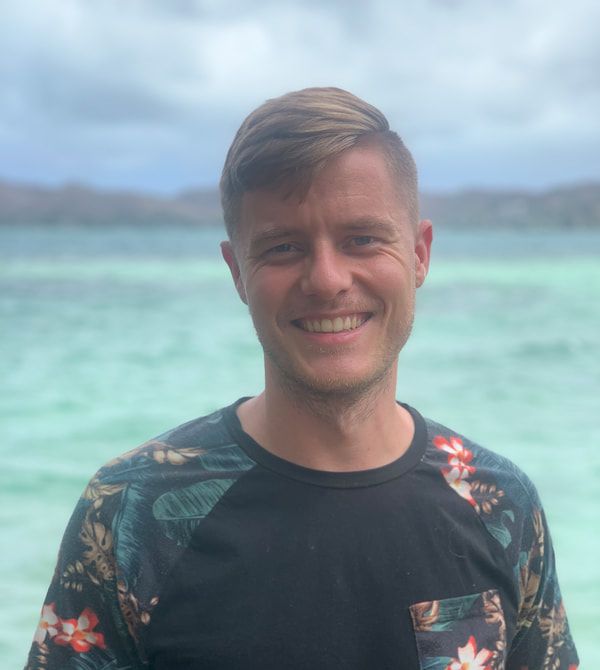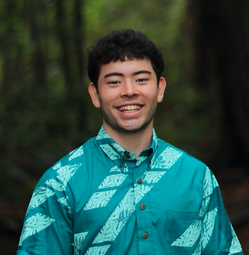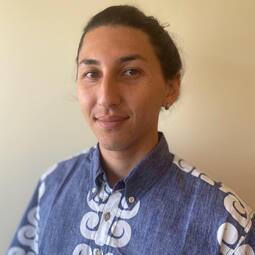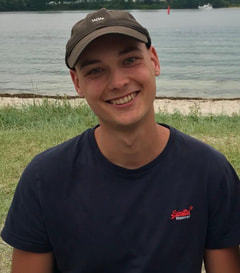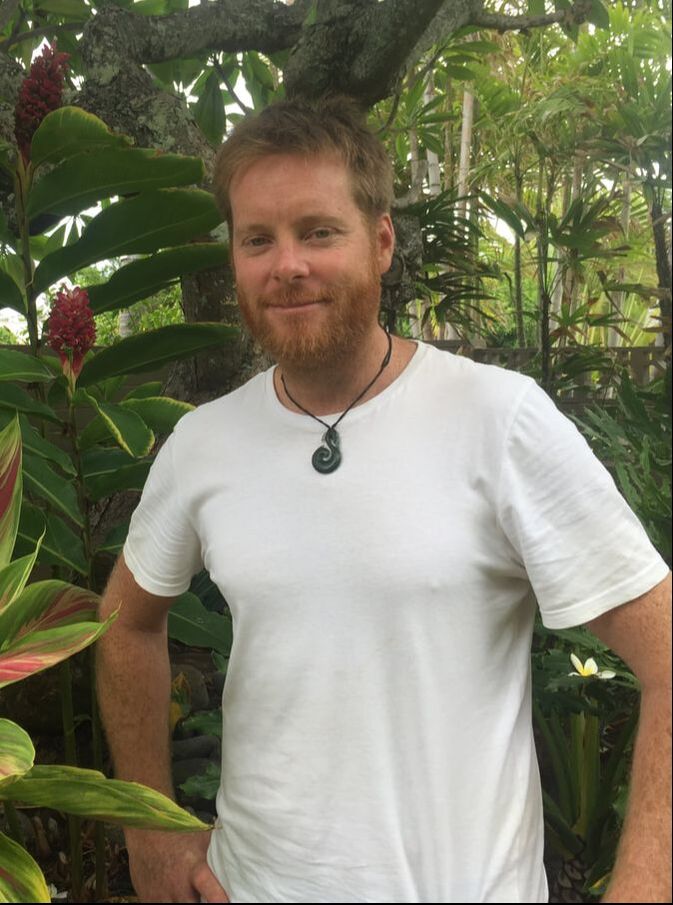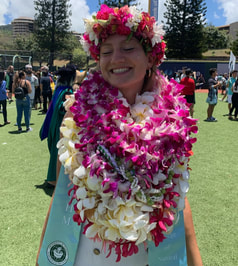|
Lab PI: Ass. Research Professor Jacob L Johansen Lab location: Hawaii Institute of Marine Biology (HIMB), University of Hawaii, Manoa, USA Expertise: Originally from Northern Europe (Denmark) Jacob spent the past 20 years working all over the globe from Australia, South America, Middle East, Europe, Austral-Asia to USA. With a strong background in eco-physiology and behavioral ecology, Jacob's research focuses on how tropical coral reef organisms react and adapt to natural and human-induced environmental stress. Core strengths in research and student training include coral reef ecology, environmental stress responses, physiological tolerance, movement patterns and behavioral ecology of fishes. Research topics include species habitat selection, range-shift, habitat invasions, and the capacity of fishes to mitigate ongoing stressors using a combination of field and state-of-the-art laboratory techniques to quantify impacts of disturbances on ecosystem health and resilience, and provide practical solutions to policymakers, communities and industries. Professional links: ResearchGate Google-Scholar Linkedin Lab Manager: Shane Ribovich Shane recently moved from Eureka, California where he received a B.S. in Marine Biology with a Minor in Oceanography from Cal Poly Humboldt. He was was employed as a Scientific Diver at the Northcoast Evaluation of Reef Ecosystems Organization performing long-term Marine Protected Area monitoring surveys and supporting field research for Cal Poly Humboldt’s Telonicher Marine Lab. He has experience as a Field Research Technician with the California Collaborative Fisheries Research Program working on charter boats and shorelines to tag, collect, and dissect many Northern California groundfish species. His background as a marine mechanic, aquarist, and carpenter enables him to keep the crucial marine climate research projects that this lab conducts, up and running. He will be also be collaborating with NOAA Fisheries to support both lab and field-based operations. Postdoctoral Research Fellows: Dr. Linda Eggertsen Research topic: Predicting spatial and temporal responses of herbivorous fishes to sediment runoff Location: HIMB, University of Hawaii at Manoa, USA Biography: I have a general research interest in reef fish ecology, with a background as a field ecologist studying connectivity, seascape ecology and herbivory, and its effects on ecosystem function. I am also interested in behavior ecology and how this shapes fish distribution and function on reef ecosystems. During my time at HIMB, I will be investigating effects of land-based run-off (sedimentation and nutrients) on fish herbivory and fish distributions. Additionally, I want to understand how runoff and land-based nutrients may impact coastal food webs and alter the trophodynamics on reefs. It is important to me that the results and insights from my research can be applied to management and broader systems elsewhere. Professional links: Research gate Google scholar Graduate Students: Ph.D: Leon Tran (NSF GRFP fellow) Research topic: Consequences of environmental stress on fish reproduction Location: HIMB, University of Hawaii at Manoa, USA Biography: I am broadly interested in the effects of climate change on the physiological performance of marine fishes. Specifically, I am interested in how thermal and oxygen stress may impact the reproductive performance of economically important fish species. I hope to apply my research to inform adaptive fisheries management under future climate change. I am also interested in exploring the role of adaptive fisheries management in preserving important bio-cultural resources. Ph.D: Jasmine Reighard (NSF GRFP fellow) Research topic: The effects of suspended sediment on the retainment and delivery of reef fish functions Location: HIMB, University of Hawaii at Manoa, USA Biography: My research interests include both physiological and behavioral ecology to support the preservation of tropical marine ecosystems. I am interested in establishing mechanistic linkages between the effect of sedimentation and the ability of herbivorous reef fishes to limit coral-algal phase shifts. My current focus is on stress responses—hormone secretion, metabolic performance, and foraging—of culturally and economically important reef fish to declining water quality. I strive to use my findings towards fisheries management to sustain the livelihoods and identities of island nations, whether it be my family in the Philippines or Native Hawaiians or the millions of others who depend on the health of their islands' surrounding waters for economic security, food, and, importantly, joy. Ph.D: Mathias Schakmann Research topic: Resilience of coral reef fishes to terrigenous run-off Location: HIMB, University of Hawaii at Manoa, USA Biography: As an early-career scientist with a passion for reef fish ecology, I am particularly interested in combining field and laboratory techniques to investigate how marine organisms respond behaviorally and physiologically to environmental stress, including temperature, water quality, pollution, and storm surges. My current research focuses on the impacts of excess sediment run-off, a human-induced problem for coral reefs worldwide, on herbivorous fishes and their ability to prevent coral-algae phase shifts. M.S: Katherine Grellman Research topic: The effects of sediment-laden algal turfs on herbivorous coral reef fish Location: HIMB, University of Hawaii at Manoa, USA Biography: I am broadly interested in coral reef ecology and conservation, and how anthropogenic stressors are reshaping reef systems. I am especially curious about the effects of enhanced sedimentation on fish foraging behavior. With an interdisciplinary background in environmental geology, I am passionate about integrating geological, biological, and behavioral aspects into my research. Currently, my research focuses on herbivorous fish interactions with sediment-laden algal turfs to understand how settled sediment influences reef productivity. I hope my research can help inform land management and marine conservation decisions moving forward, while shedding light on what to expect for our reefs in the future with increasing sedimentation. Ph.D affiliate: Taylor Souza Taylor is a PhD student from Stanford University conducting her field and lab research at the Johansen Fish Resilience Lab. Taylor is interested in investigating coral reef ecology and exploring the movement of endemic Hawaiian reef fish of conservation and fishery concern in response to ecological and anthropogenic stressors. She is particularly interested in investigating the biogeography of reef fish as well as their habitat utilization to better inform fisheries management and policy and lay the groundwork for ecosystem-based fisheries management in the face of global change. Prior to beginning her PhD, Taylor worked for three years at NOAA’s Pacific Islands Fisheries Science Center as a Large Marine Ecosystem Research Technician, working towards designating the Marianas as the first archipelagic Large Marine Ecosystem in the world. She received her B.S. in Environmental Science from Linfield College in McMinnville, Oregon. M.S: ʻAʻaliʻi Kelling Research topic: Assessing the influence of Native Hawaiian imu (fish houses) on juvenile fish behavior. Location: HIMB, University of Hawaii at Manoa, USA Biography: My research interests include anthropogenic disturbances on fish and marine ecosystems, fish-human interactions as well as food web sustainability with an increase in habitat complexity. My current research encompasses habitat augmentation as it relates to how Native Hawaiians modified landscapes to alter fish behavior, specifically on fish responses to imu or ahu (fish houses) that are simulated as artificial reef systems along the coastline. The reintroduction of imu into near-shore environments will create safer habitats for fish species and contribute to an increase in abundance. This augmentation can be used not only as a sustainable effort to increase population size but potentially return native species that once thrived within these waters. M.S: Jonathan Rosen Location: HIMB, University of Hawaii at Manoa, USA Biography: With my background in coastal resource management, I am interested further understand the affects of predicted warming ocean conditions on economically and culturally significant Hawaiian reef fish species. Through my research I plan to analyze the physiologically and behaviorally response of herbivorous reef fish under changing temperatures and environmental stressors. My goal is to apply my research towards fisheries management efforts in order to better understand and preserve Hawaii’s precious coastal ecosystems under a changing climate. Laboratory Managers: Shane Ribovich 2024 - Current Chloe (Pixie) Moore 2022 - 2023 Mathias Soerensen, 2019 - 2022 Leon Tran, 2020 - 2020 Past members / completed: Dr. Jeroen Brijs Research topic: The effects of environmental heat waves on feeding behavior and energetics of coral reef fishes Location: HIMB, University of Hawaii at Manoa, USA Biography: I have a broad-ranging interest in comparative ecophysiology with a particular focus on the effects of environmental and/or anthropogenic stressors on behavioral and physiological processes in fish, and how this impacts their survival, performance and welfare. Here, in Hawaii, I am especially interested in how environmental heat waves impact the behavior and physiology of both herbivorous and piscivorous coral reef fishes when feeding, which of course, is a process that is crucial for survival. This research will provide crucial information on how coral reef fish communities will fare in response to these drastic environmental events that are already happening today, and are unfortunately predicted to become more frequent and intense in the future. Professional links: ResearchGate Google-Scholar M.S: Marie Golan and Gustav Kronholm Location: University of Copenhagen, Copenhagen, Denmark Biography: We are students visiting from the University of Copenhagen to do research for our master thesis project. We are particularly interested in the effect temperature has on the behavioral and physiological processes of fish and especially the stenothermal species found in tropical waters. Currently, our research focuses on the effect marine heatwaves have on a common species of herbivorous fish in Hawaii; the manini. More specifically, we aim to determine their preferred temperature, optimal temperature, and maximum temperature across individuals from different temperature regimes. We hope this research will give insight into how this species behaviorally cope with marine heatwaves, as well as what their energetic expenditure for swimming is at different temperatures. Ph.D: Alexis Khursigara Research topic: Effect of oil pollution on estuarine and marine fishes Location: University of Texas at Austin, USA Ph.D: Grace Vaughan Research topic: Adaptation and acclimation of coral reef fishes to extreme thermal conditions in the Arabian Gulf Location: New York University Abu Dhabi, UAE Ph.D: Tiffany Nay Research topic: Habitat preference and movement patterns of coral reef fishes Location: ARC Centre of Excellence for Coral Reef Studies, Australia M.Sc: Tiffany Nay Research topic: Behavioural thermo-regulation by coral reef fishes Location: James Cook University, Australia M.Sc: Adam Harbary Research topic: Thermal preference and acclimation capacity of coral reef fishes Location: University of Copenhagen, Denmark Present position: Research technician at Lion Pharmaceuticals , Denmark M.Sc: Conner Gervais Research topic: Juvenile epaulette sharks, Hemiscyllium ocellatum, and predicted future ocean temperatures Location: James Cook University, Australia Present position: Ph.D. student at Macquarie University, Australia NSF Research Experience for Undergraduates: Lauren Rowsey Research topic: Oil exposure impacts on predator-prey dynamics in larval fishes Location: University of Texas at Austin, USA Present position: Ph.D. student at Memorial University of Newfoundland, Canada |
All rights reserved @ Jacob L Johansen 2016






